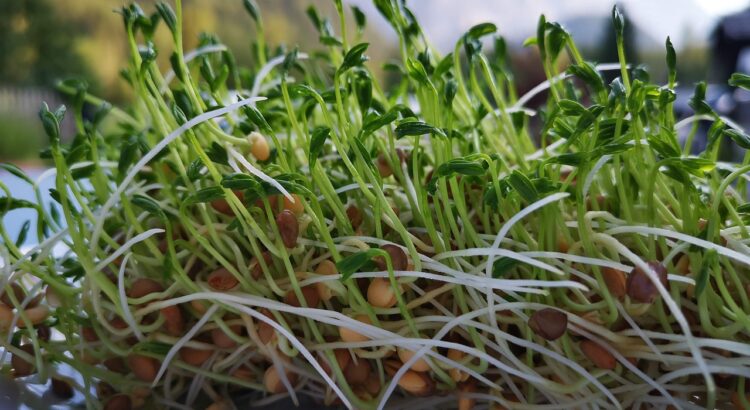Lentils are a valuable source of phenolic compounds, which act as natural antioxidants in the human body. A scientist from the Institute of Animal Reproduction and Food Research of the Polish Academy of Sciences in Olsztyn reminds us that their highest content is in sprouts.
– The content of phenolic compounds in sprouts obtained from lentil seeds is clearly higher than that found in the seeds. It is also worth remembering that thermal processes may reduce the phenolic content in lentils, so the seeds should not be cooked for too long – says Professor Ryszard Amarowicz, head of the Department of Chemical and Physical Properties of Food at the Institute of Animal Reproduction and Food Research of the Polish Academy of Sciences in Olsztyn.
Professor Ryszard Amarowicz (together with Professor Ronald Pegg of the University of Athens, Georgia, USA) published a review article in the journal Current Pharmaceutical Design, bringing together the latest scientific knowledge on lentils as a source of phenolic compounds.
VALUABLE LEGUME
Lentils are a valuable source of protein with a balanced amino acid composition that is superior to cereals.
– Lentil seeds in the human diet provide a high supply of some B vitamins and dietary fibre. They also contain oligosaccharides, which show prebiotic properties, i.e. have a beneficial effect on the microflora of the human digestive tract. Lentil seeds are also an important source of phenolic compounds for us, explains Professor Ryszard Amarowicz, who studies the content of nutrients and biologically active compounds in plant raw materials and food.
Phenolic compounds demonstrate antioxidant activity and the ability to inhibit microbial growth. – In the human body, they act as natural antioxidants – they are able to inactivate free radicals (associated with the aetiology of many lifestyle diseases), as well as inhibit the oxidation of cholesterol in low-density lipoproteins (LDL), and can therefore „defend” us against atherosclerosis. Phenols also inhibit the activity of digestive enzymes, amylase and lipase; we can therefore speak of their anti-diabetic activity and point to the possibility of using them in the prevention/treatment of obesity – the scientist points out.
THE LESS COOKING THE BETTER
The aforementioned review article presents lentils as a rich source of phenolic compounds, the chemical side of these compounds, their biological properties and the impact that processing can have on them.
The researchers recalled that the phenolic content is affected by the processing of raw lentils in the form of cooking, sprouting and fermentation.
– The thermal processes reduce the compactness of the phenolic compounds in the lentils (these compounds can either be oxidised or pass into water when the seeds are soaked or cooked). Hence the practical advice: let’s not cook the seeds for too long. Let’s also try to use the water after cooking them, as it certainly contains phenolic compounds – says Professor Ryszard Amarowicz.
The phenolic content of lentils is also influenced by their varietal characteristics, agronomic treatments e.g. amount of fertilisation, climatic conditions in the country where the plant originates. – In my research, for example, we found that green and red lentils differ in their phenolic compound profile and antioxidant potential. Green lentil extract, compared to red lentil extract, was richer in phenolic compounds and had higher antioxidant activity – the researcher points out.
CYTOTOXIC EFFECT
The publication also describes several positive biological effects of lentil extracts on cell culture and in animal studies.
– Using cell line studies, it was found that extracts rich in phenolic compounds obtained from lentil seeds have a cytotoxic effect on a number of cancer cells. These include colon, stomach, liver and kidney cancer cells – the researcher reports.
The protective effect of black lentil extract against DNA was also experimentally demonstrated, and the anti-inflammatory effect of phenolic compounds present in lentil seed extracts was confirmed. In turn, red lentil extract administered to rats counteracted oxidative stress in the animals’ bodies, which was confirmed by the results of analysis of several biochemical parameters.
– The inclusion of lentils in the diet has a beneficial effect on our diet and thus has a health-promoting effect on a number of issues, concludes Professor Ryszard Amarowicz.
